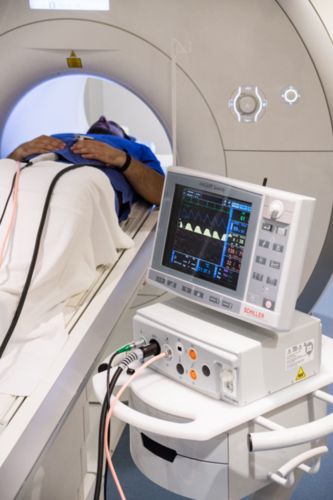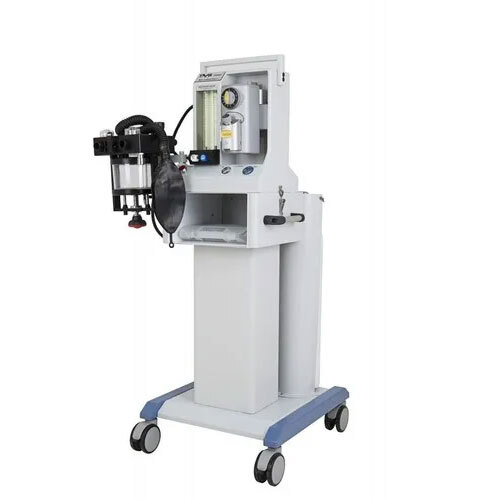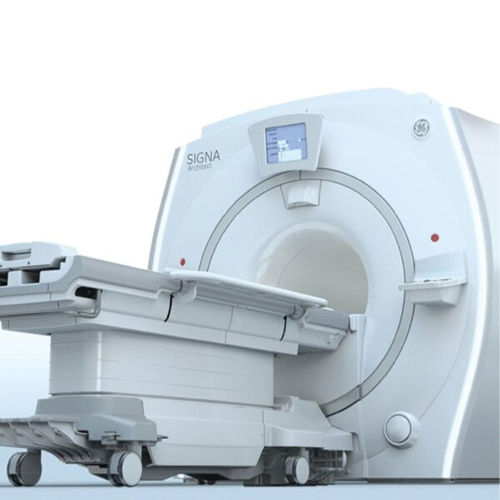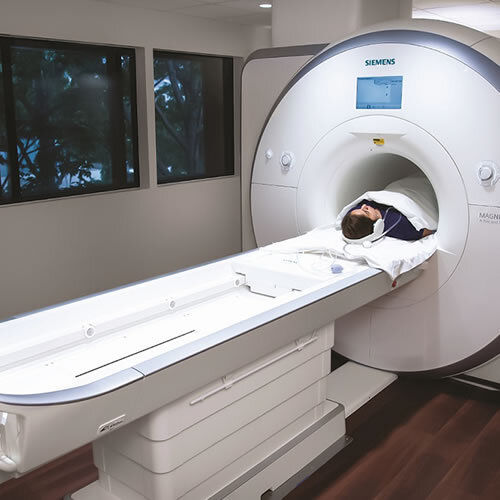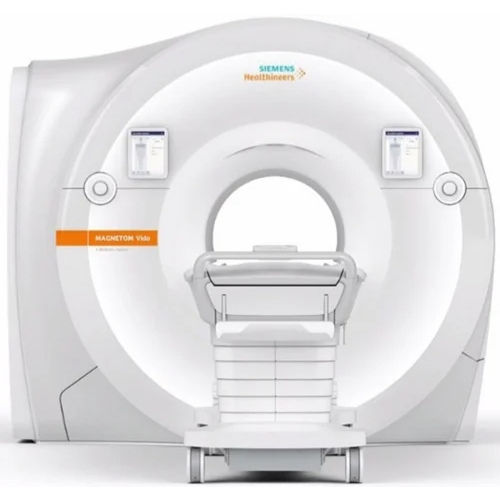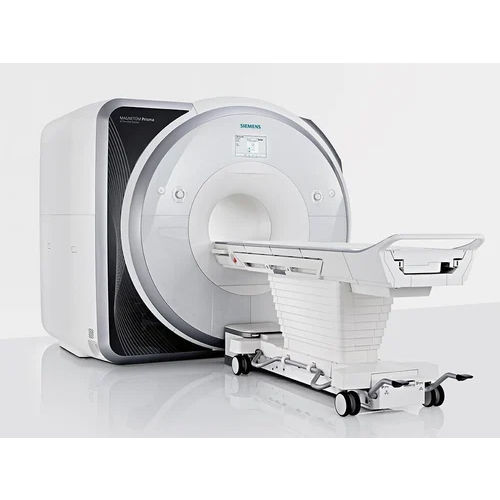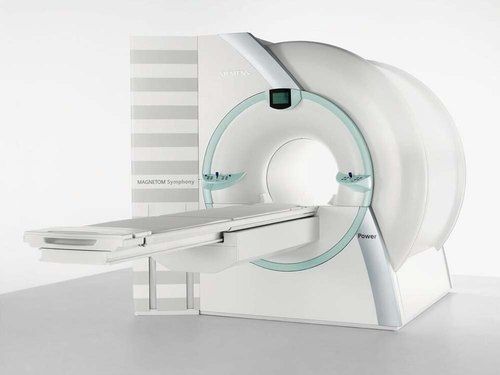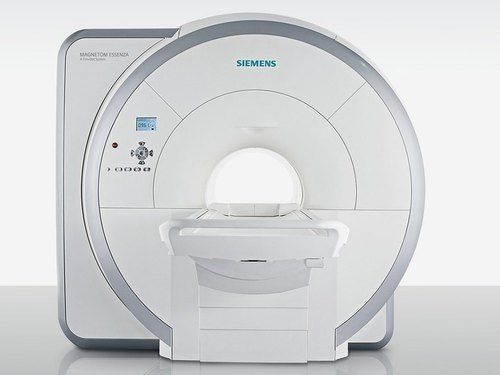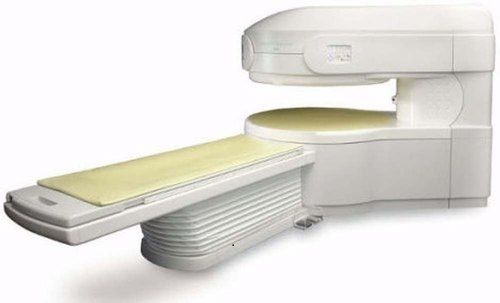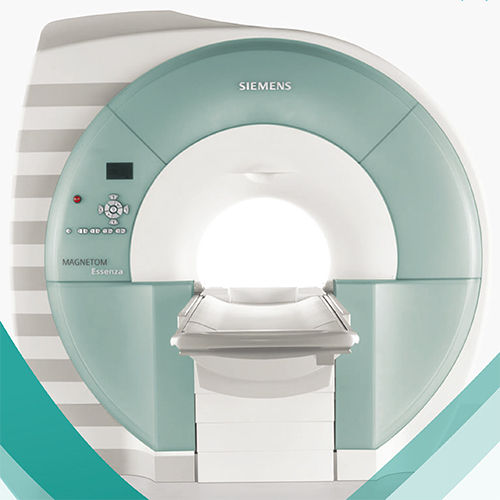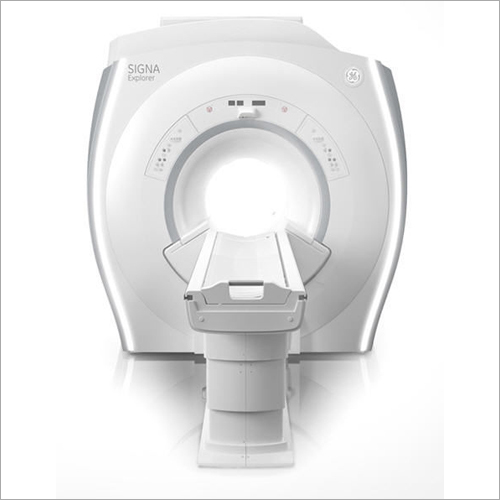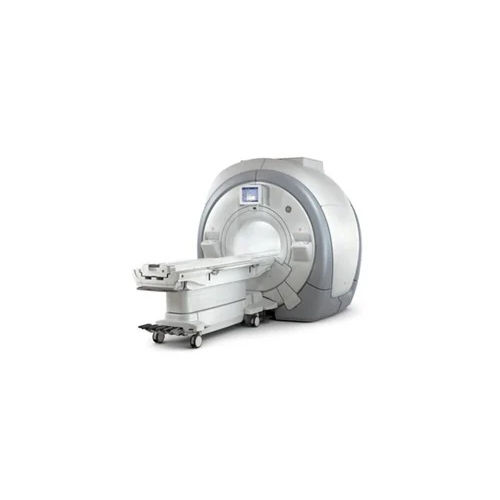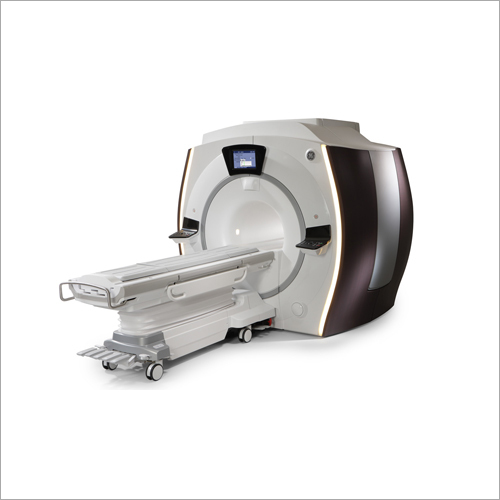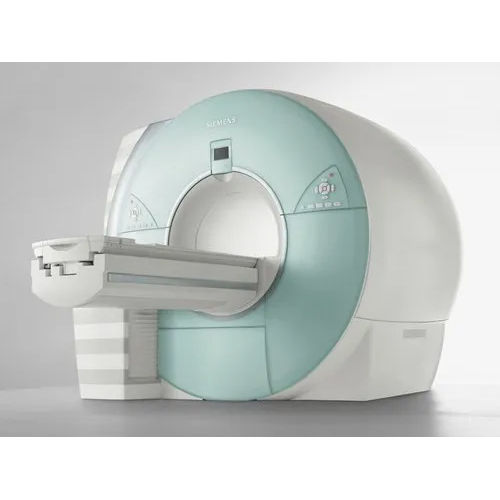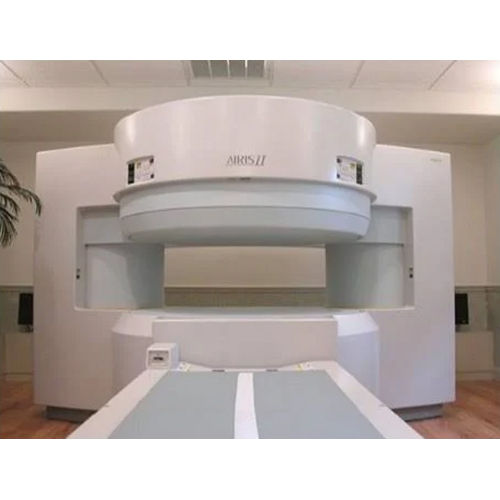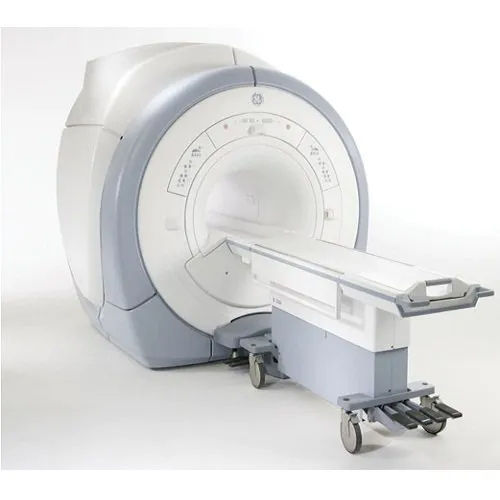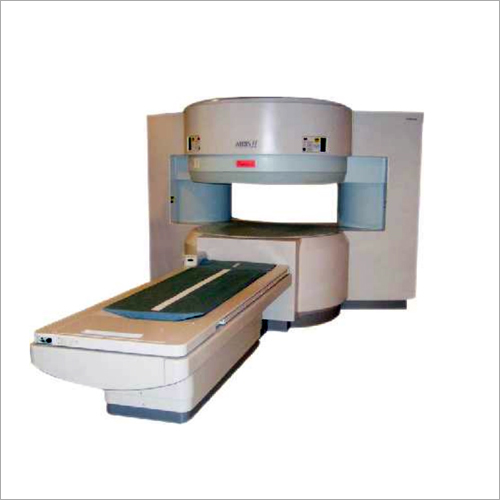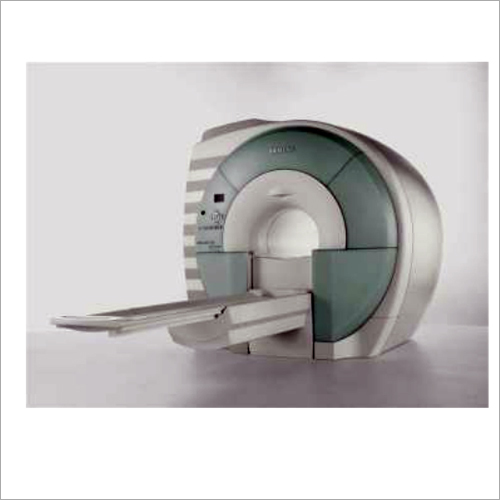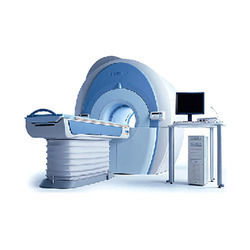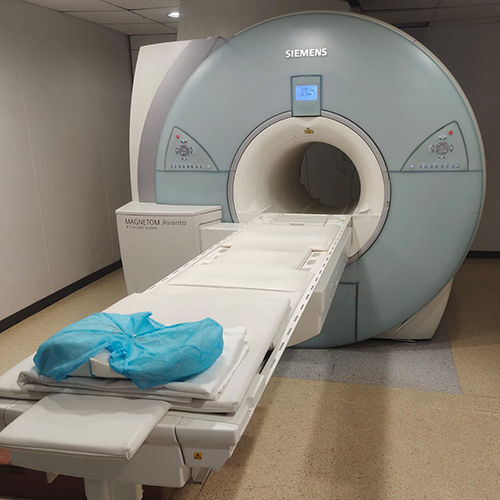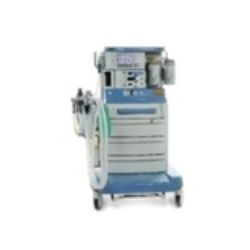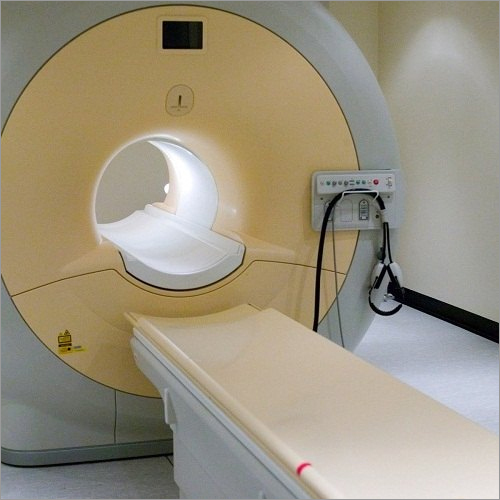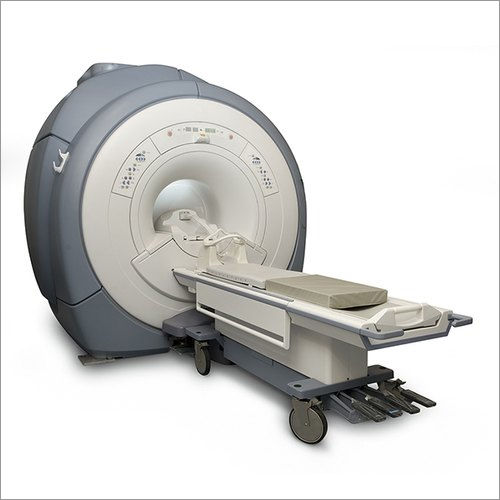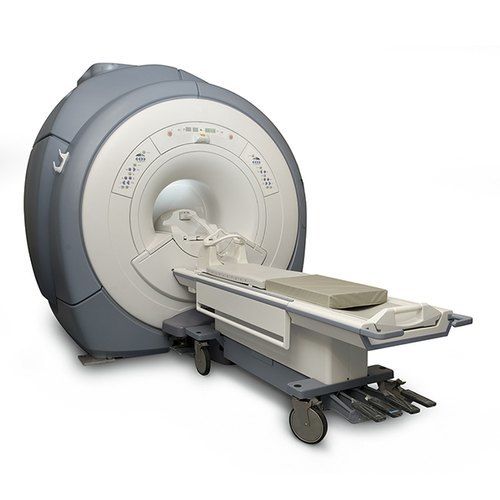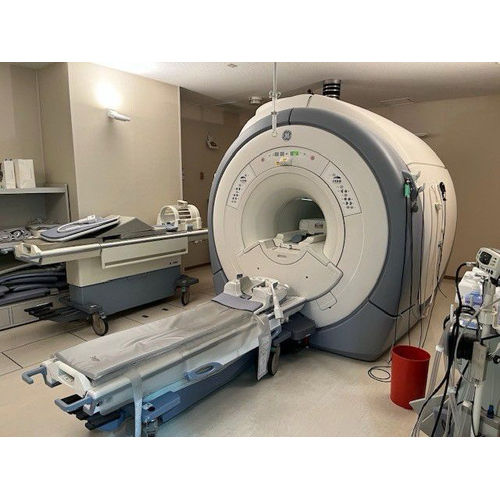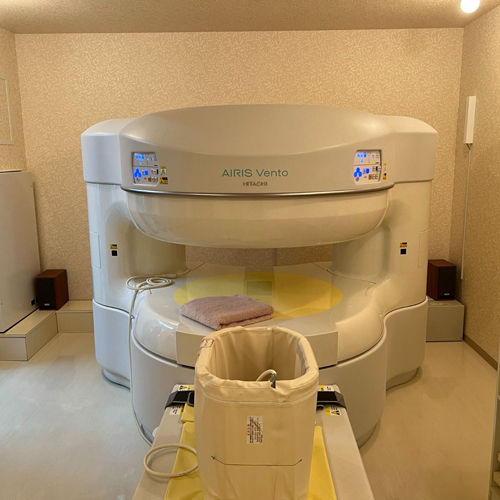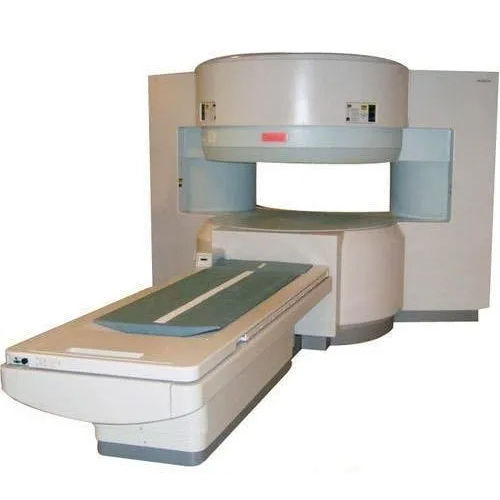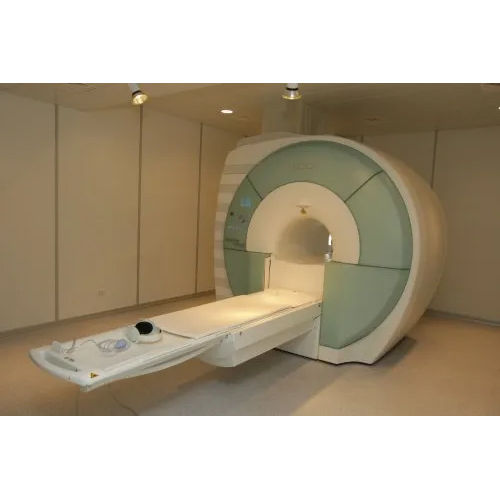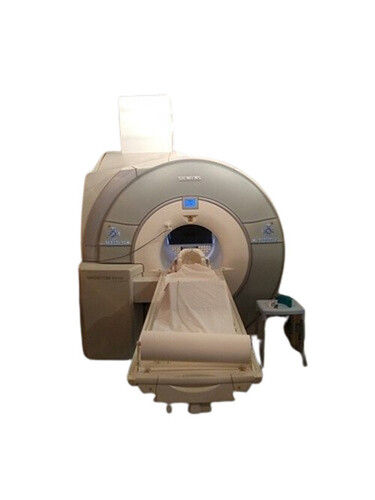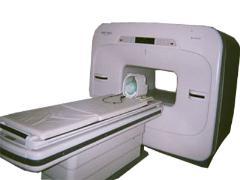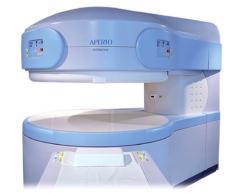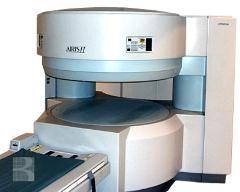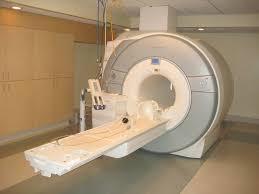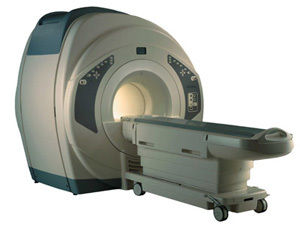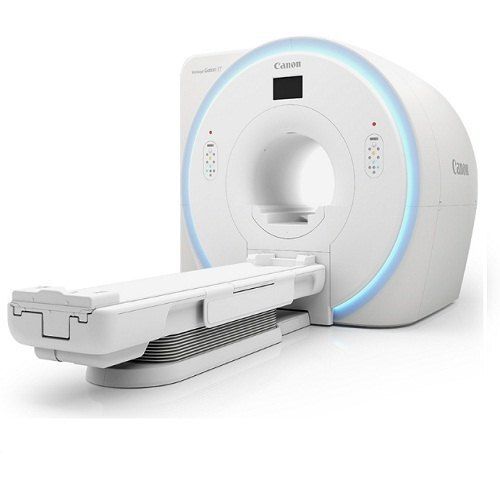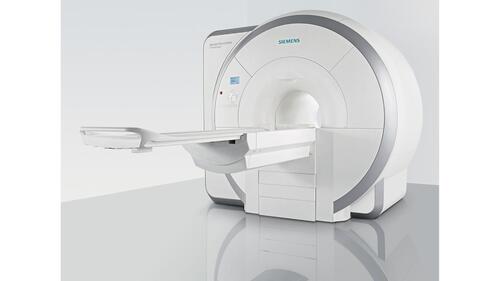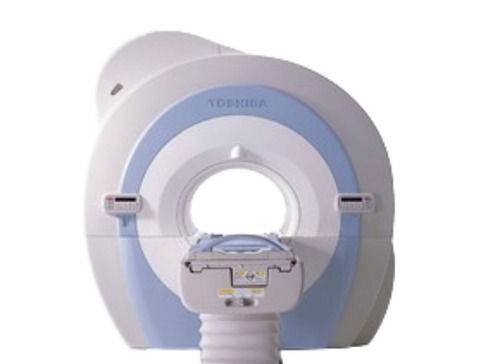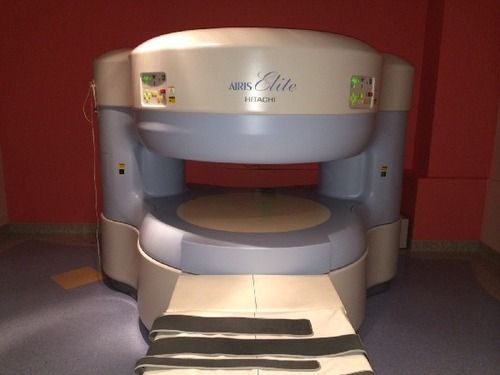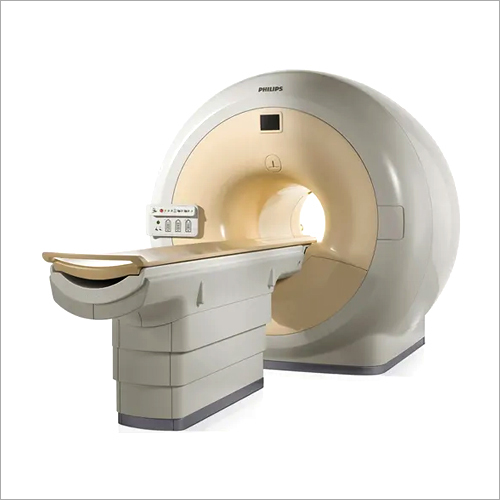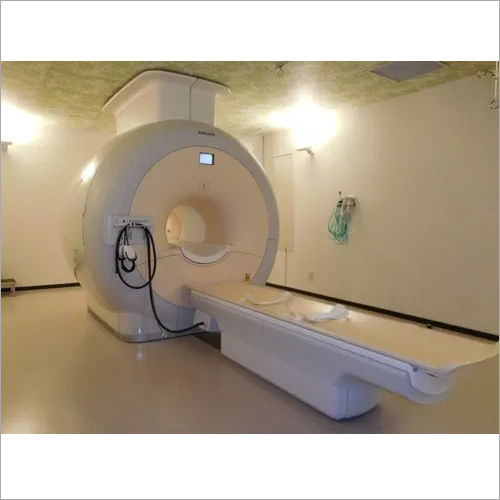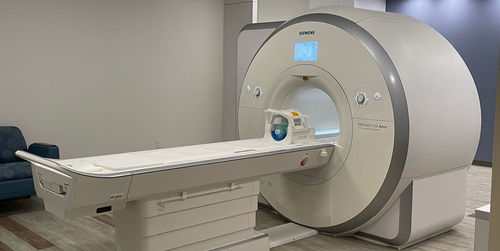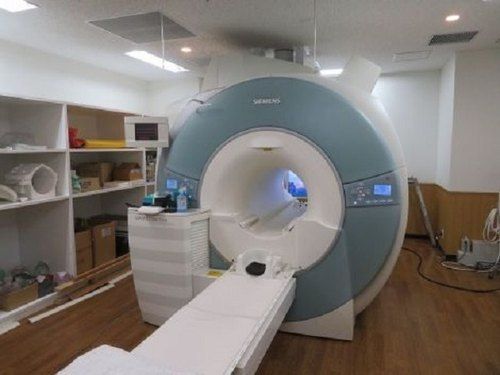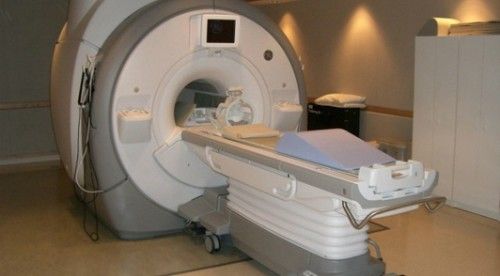Mri Machine
(211 products)
Mri Compatible Patient Monitor Application: Control Unit Option To Observe The Data And Control The System From Technician Room
Price: 3000000 INR/Piece
MOQ - 1 Piece/Pieces
Application - Control Unit Option To Observe The Data And Control The System From Technician Room
Material - Plastic
Use - MRI ROOM
13 Years
Business Type: Manufacturer | Distributor
BIO-X
Ge Hdxt 1.5T Mri System Application: Commercial
MOQ - 1 Unit/Units
Suitable For - Medical Labs / Hospital
Material - Stainless Steel / PVC
Application - Commercial
1 Years
RADSCAN SYSTEMS PRIVATE LIMITED
Siemens Magnetom Avanto 1.5T Superconducting MRI Machine
Price: 38000000 INR/Piece
MOQ - 1 Piece/Pieces
1 Years
Business Type: Supplier | Trading Company
Microwave Tools & Gauges
Indian Inquiries Only
100% Stainless Steel Mri Machine, Uses In Hospital, For Imaging Small Bones, Breast Tissue, Musculoskeletal Structures, The Brain And Spine, And Vascular Flow Application: Hospital
Price: 3,500,000 INR/Unit
MOQ - 10 Piece/Pieces
Color Code - white
Material - Stainless Steel
Product Type - MRI machine
1 Years
Business Type: Manufacturer | Supplier
Arnica Healthtech
Ge Signa Creator 60Cm 1.5 T Mri Scanner Machine Application: Hospital
Price: 32000000 INR/Unit
MOQ - Any Order Unit/Units,
Use - Scanning
Application - Hospital, Lab
Product Type - MRI Scanner Machine
4 Years
Business Type: Supplier | Trading Company
MEDINNOVA SYSTEMS PVT. LTD.
Siemens Pre Owend Fully Imported Mri Machine Application: Commercial
MOQ - 1 Unit/Units
Application - Commercial
Suitable For - Hospitals / Lab
Properties - High Quality
2 Years
Business Type: Supplier | Trading Company
Radiance Healthcare Inc
Refurbished Siemens 1.5T Magnetom Avanto Mri Machines Color Code: Customized
Price: 1,65,00,000 INR/Piece
MOQ - 1 Piece/Pieces
Application - MRI Machine
Product Type - Refurbished Siemens 1.5T Magnetom Avanto MRI Machines
Material - Metal/Plastic
5 Years
Business Type: Manufacturer | Distributor
HI TOUCH INSTRUMENTS
Easy Use MRI Machine
MOQ - 1 Unit/Units
Attributes - Safe to Use, Other, Easy To Operate, Latest Technology
7 Years
Business Type: Manufacturer | Exporter
RADIMAGE TECHNOLOGIES PVT. LTD.
Medical Mri Machine Application: Hospital
MOQ - 1 Unit/Units
Product Type - Medical MRI Machine
Properties - High Quality
Use - Scanning
Business Type: Manufacturer | Distributor
SBM HEALTH CARE
Refurbished Mri Scanner Machine Application: Hospital
Price: 16000000 INR/Unit
MOQ - 1 Unit/Units
Application - Hospital
Color Code - Gray
Product Type - Refurbished MRI Machine
3 Years
Business Type: Manufacturer | Distributor
SONOMATRIX MEDICARE
Indian Inquiries Only
Related Searches
Ge Hdxt 3T Mri Machine Application: Commercial
MOQ - 1 Unit/Units
Use - Medical
Material - Metal & PVC
Suitable For - Hospitals / Labs
2 Years
Business Type: Supplier | Service Provider
Shri Vindhyachal Biomedical Engineering Solutions
Refurbished Hitachi Airis 2 Mri Machine Color Code: White-Light Blue
Price: 850000000 INR/Piece
MOQ - 1 Piece/Pieces
Color Code - White-Light Blue
Material - FRP
Use - Hospital
Business Type: Service Provider | Trading Company
S.B.M. HEALTHCARE (INDIA) PVT. LTD.
Aparto MRI Machine 4.95CR
MOQ - 1 Unit/Units
Use - Used for whole body scanning
Suitable For - Hospital, Diagnostic Centre
Product Type - Aparto MRI Machine 4.95CR
Devyasi India Private Limited
Mri Machine For Hospital Color Code: White
Price: 5000000 INR/Piece
MOQ - 1 Piece/Pieces
Material - Metal
Product Type - MRI Machine
Color Code - White
Business Type: Manufacturer | Supplier
DHRUVIDHI LIFECARE SOLUTIONS INDIA LLP
Siemens 3.0 T Magnetom Verio MRI Machine
Price: 56000000 INR/Unit
MOQ - 1 Unit/Units
Application - Hospitals
Product Type - MRI Machine
Business Type: Supplier | Trading Company
Gotra Healthcare India Inc
Free From Defects Mri Machine
Price: 1500000 INR/Unit
MOQ - 1 Unit/Units
Application - Hom, Clinic
Product Type - Mri Machine
Business Type: Exporter | Trading Company
RAD-RAY IMAGING LTD
MRI Machine Voltage 220V Power 3-6kw
Price: 1200000 INR/Piece
MOQ - 1 Piece/Pieces
Suitable For - 12
Power - 12 Watt (w)
Color Code - 12
Business Type: Trading Company
GMTEC HEALTHCARE LLP
Canon Vantage Galan Mri Machine
Price: 30000000 INR/Piece
MOQ - 1 Piece/Pieces
Product Type - MRI Machine
Application - Hospital
Suitable For - Patient Monitoring
Business Type: Service Provider | Trading Company
MATRIX MEDI SERVICES
Mri Machine Usage: Industrial
Price: 32500000 INR/Piece
MOQ - 1 Piece/Pieces
Business Type: Trading Company
AL FATEMIYAH OVERSEAS TRADING
Siemens Magnetom 3.0T Trio Tim Mri Machine Application: Hospitals
Price: 110000 USD ($)/Unit
MOQ - 1 Unit/Units
Application - Hospitals, Diagnostic centers and clinics
Suitable For - All
Business Type: Distributor | Trading Company
Asiatic Global Corporation
What is MRI Machine?
Radiologists use magnetic resonance imaging (MRI) to create images of the human body's internal structures and functions. Images of the body's organs are created by a combination of radio waves, magnetic fields, and magnetic field gradients in an MRI scanner.
Unlike CT and PET scans, MRI does not use X-rays or any other form of ionising radiation. Nuclear magnetic resonance (NMR) has many uses outside of the medical field, and magnetic resonance imaging (MRI) is just one of them.
MRI is routinely used in healthcare settings for disease diagnosis, staging, and monitoring. Images of soft tissues, such as the brain or abdomen, show more detail when taken with an MRI machine than they would with a CT scanner.
Although "Open" MRI designs mitigate this issue to a large extent, patients may find it less comfortable due to the longer and louder measurements typically required of them while they are enclosed in a long, confined tube. Certain patients may also be unable to undergo a safe MRI exam because they have metal implants or other non-removable metal in their bodies.
MRI Machine Generations
Many researchers in the early 20th century helped uncover the physics of magnetic resonance imaging and contribute to the finding of nuclear magnetic resonance (NMR).
Listed below are the various MRI machine generations.
1. Nuclear magnetic resonance
Erwin Hahn discovered spin echoes and free induction decay in 1950, and in 1952, Herman Carr reported the production of a one-dimensional NMR spectrum in his Harvard Ph.D. thesis.
In 1960, a Soviet scientist named VladislavIvanov submitted a patent application for a Magnetic Resonance Imaging device, suggesting the next logical step (moving beyond spectra to imaging). Ivanov made a significant contribution by proposing encoding the location data as a magnetic field gradient, which could then be read out using a selective frequency excitation/readout.
In 1984, Ivanov's application was finally approved after being initially rejected as "improbable" (with the original priority date).
2. Relaxation times and early development of MRI
In 1959, Jay Singer used NMR relaxation time measurements of blood in living humans to study blood flow. Although Alexander Ganssen patented a whole-body NMR machine to measure blood flow in the human body as early as 1967, it wasn't until the mid-1980s that such measurements were routinely used in medicine.
In the 1960s, researchers published their findings on the diffusion, relaxation, and chemical exchange of water in different types of cells and tissues. NMR relaxation of water was first measured in the arms of living humans by Ligon in 1967. The first NMR signals from a living animal, an anaesthetized rat, were published by Jackson and Langham in 1968.
3. Imaging
Paul Lauterbur of Stony Brook University, expanding on Carr's work, employed gradients to produce the first MRI images. In January 1974, Lauterbur published the first cross-sectional image of a living mouse using nuclear magnetic resonance, which he had first published in 1973.
The echo-planar imaging (EPI) method was developed in the late 1970s by Peter Mansfield, a scientist and researcher at the University of Nottingham in England.
Scans could be completed in seconds instead of hours, and the resulting photographs were clearer than anything that Lauterbur had managed to produce. A mouse tumour was imaged in 1976 by Damadian, Larry Minkoff, and Michael Goldsmith.
4. Full-body scanning
John Mallard and his team at the University of Aberdeen created the first-ever body-wide MRI scanner in the 1970s.
The first therapeutically useful magnetic resonance imaging (MRI) image of a patient's interior tissues was obtained with this machine on August 28, 1980. The scan revealed a primary tumor in the patient's chest, a irregular liver, plus metastatic malignancy in his bones.
Thereafter, from 1983 to 1993, this apparatus saw service at London's St. Bartholomew's Hospital. Thanks to technological advancements made by Mallard's group, MRI became widely available.
5. Additional techniques
When General Electric's Charles L. Dumoulin and Howard R. Hart were working on MR angiography in 1986, Denis Le Bihan was able to obtain the first images using a diffusion mri machine, which would later be patented.
For perfusion MRI, Arno Villringer and coworkers proved the feasibility of using susceptibility contrast agents in 1988.
The principle of Functional Magnetic Resonance Imaging was discovered in 1990 by Seiji Ogawa at AT&T Bell Labs when he noticed that dHb in oxygen-starved blood was drawn to a magnetic field (fMRI).
6. Bedside imaging
The 510(k)[clarification needed approval for Hyperfine Research's portable MRI system was proposed by the USFDA in 2020.
The Hyperfine system supposedly weighs only ten percent as much as regular MRI machines, uses one-third as much power, and costs only one-fiftieth as much. For power, it plugs into any regular wall socket.
Types of MRI Machine
Let’s have a look at the different types of MRI scanner machines.
1. Open Upright MRI
Patients undergoing an open upright MRI are able to sit up straight in a chair-like arrangement throughout the entire procedure. However, when compared to other available MRI formats, open upright MRIs have the weakest magnet strength.
2. Truly Open’ MRI
The MRI scanner in question is open on all four sides, allowing for greater airflow and ventilation. This means, however, that the resulting image and details are not as high-quality as those produced by the aforementioned two types of scanners. Also, because of its open design, this type of MRI scanner can only generate a magnetic field as strong as 1.2T.
3. Wide Bore MRI
These scanners are more open than traditional ones, with larger windows and more room for the user's head.
Seventy centimeters is the diameter of the bore (the size of a hula hoop). Patients, especially those who are stockier in build, may find that there is more room in these scanners.
This machine has a magnetic field strength of 1.5T, which is not as strong as that of closed MRI scanners and thus does not produce images with the same clarity. As such, it has characteristics that fall somewhere in the middle of those of 'truly open' and 'closed' MRIs.
4. 3 Tesla MRI
When compared to other MRI machines currently on the market, this one has the strongest magnetic field and strongest signal, allowing for a clear picture.
A 3T MRI, for instance, can detect vascular problems anywhere in the body, including those in blood vessels as small as 200–300 microns.
The analysis of the internal organs is thorough, and details about conditions like arthritis, disc disease, or bone infections are not left out. In addition, the procedure only takes a fraction of the time that conventional MRI scanners do.
5. Closed MRI
The inside of a closed MRI scanner looks like a thin cylinder 60 c.m. in diameter. A maximum magnetic field strength of 3T is achieved, surpassing that of any currently available commercial MRI scanner. This high magnetic strength allows for exceptionally clear imaging, which aids in the accurate diagnosis of medical conditions.
6. Standing or Sitting MRI
Providing for a patient's comfort is crucial. Patients need for greater comfort led to the creation of upright MRI scanners.
These devices improve patient comfort, but their image quality is subpar. The potential for these machines to vastly improve their current level of performance bodes well for their future utility. As of right now, though, their utility is limited to narrow niches.
MRI Machine Uses
Cases where an MRI scanner might be useful are as follows.
-
1. Conditions affecting the central nervous system.
-
2. Malformations of various kinds, such as tumours and cysts.
-
3. Women at increased risk of developing breast cancer should undergo regular screening mammograms.
-
4. Problems with the heart's electrical system injuries and abnormalities to the musculoskeletal system, especially the spine and the joints (including the back and the knees)
-
5. Liver and digestive system disorders
-
6. Among the many possible causes of pelvic pain in women is a uterine abnormality or a uterine fibroid.
-
7. women with infertility evaluations and suspected uterine anomalies.
What is Open MRI Machine?
These machines are exactly what they sound like. A magnet is still used to capture images of your organs, despite the fact that these facilities are open. These have a magnetic bottom and top and are open on all four sides, making them a viable alternative to traditional enclosed MRI capsules for patients with claustrophobia and other anxiety disorders who need to undergo the diagnostic imaging test. The convenience of an open MRI scanner benefits patients.
Benefits of MRI Machine:
-
1. Improved patient satisfaction
-
2. Confinement anxiety lessened
-
3. Size of the patient is less of a factor
-
4. Scanning Frequency Rise
-
5. Better body alignment with less effort
-
6. Cost savings in both the initial investment and ongoing servicing
An MRI scan allows your doctor to see inside your body without harming any of your soft tissues or bones. Producing high-resolution images of the body's interior, it aids in the diagnosis of a wide range of conditions.
Client Testimonials & Reviews
Mri Machine Price List
| Product Name | Expected Price |
|---|---|
| GE Optima MR360 MRI Machine | 35000000 |
| Refurbished Brivo MR355 1.5T MRI Machine | 30000000 |
| Optima MR360 MRI Machine | 32000000 |
| Signa HDxt 3.0T MRI Machine | 62500000 |
| GE Signa Creator MRI Machine | 32000000 |
| Signa Explorer 1.5 T MRI Machine | 35000000 |
| Optima MR450w MRI Machine | 52500000 |
| Discovery MR750W MRI Machine | 32500000 |
| Signa HDxt 1.5T MRI Machine | 30000000 |
| MRI MACHINE | 30000000 |
This Data was Last Updated on 2024-09-28
Mri Machine Manufacturers | Suppliers in India
| Company Name | Location | Member Since |
|---|---|---|
| Bio-x | Mumbai, India | 13 Years |
| Radimage Technologies Pvt. Ltd. | Faridabad, India | 7 Years |
| Hi Touch Instruments | Pune, India | 5 Years |
| Benaka Health Care | Bengaluru, India | 5 Years |
| Medinnova Systems Pvt. Ltd. | Vadodara, India | 4 Years |
| Dsf Healthcare | Surat, India | 4 Years |
| Sonomatrix Medicare | Lucknow, India | 3 Years |
| Radiance Healthcare Inc | Ranga Reddy district, India | 2 Years |
| Shri Vindhyachal Biomedical Engineering Solutions | Prayagraj, India | 2 Years |
| Radscan Systems Private Limited | New Delhi, India | 1 Years |
FAQs Related to Mri Machine
This is because gravity cannot assist in moving food and acid through your digestive tract while you are lying flat.
- Tradeindia
- Medical Equipment
- Mri Machine
Related Categories
Popular Products
Human HairForklift TrucksServo Voltage StabilizerBasmati RiceBackhoe LoaderCarry Bag Making MachineDrum LifterElectric StackerScissor LiftsIndustrial Vibrating ScreenRotameterFlowmeterRotary Air CompressorIndustrial Eto SterilizerRice Packaging MachinesShredding MachineHammer MillAutomatic Labelling MachineDiesel ForkliftAerial Work PlatformStorage Rack SystemEpoxy ResinMild Steel BarStainless Steel SheetsStainless Steel StripsBag Filling MachinesAsphalt PlantsSlat ConveyorOintment PlantPlanetary MixersLadies KurtisLed LightsCctv CameraBall ValveAnti Cancer MedicineAir CompressorIncense SticksSolar LightsGoods LiftsVitrified TilesStainless Steel CoilsPvc PipesPvc Pipe FittingsUpvc PipesUpvc Ball ValvePipe Elbows